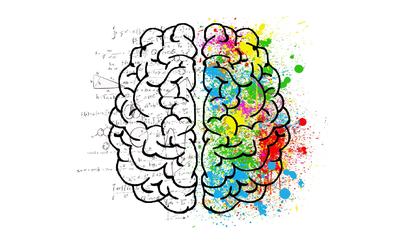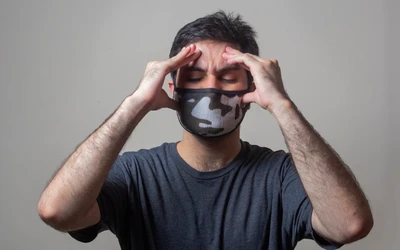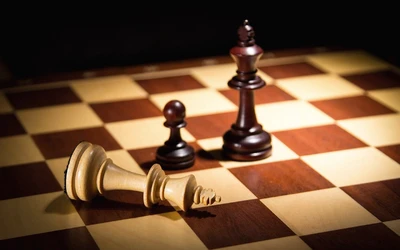
Photo by Matt Seymour on Unsplash
Chess Blindness
When you don't see what you should seeThe other day I was playing Puzzle Streak on Lichess, where you get a series of untimed puzzles and you solve them until you get one wrong. They start off very easy and get progressively more difficult. Even though the puzzles are untimed, generally at the beginning the puzzles are very simple and you can blast through them very quickly.
So I was blasting through the early puzzles very quickly--bam, bam, bam--when suddenly I was confronted with this position, at least as far as I'm able to reconstruct it:
The obvious answer is 1. Qxg7+ Kxg7 2. Rxb7 winning a piece. But for some reason at the time I couldn't get it. My first candidate was 1. Qxg7+, but I miscounted the material, thinking I was just trading queens. This is silly since White also captures the Black bishop and ends up a piece ahead. In the short time I was looking at it I missed that. So I looked at a bunch of other stuff, including 1. Rxb7 Bxe5 2. Rb5 but seeing that failed to 2. ... e6.
I couldn't find anything that worked. This is crazy, I thought. I knew I had to be missing something very obvious, because I was still doing very easy puzzles. Since the puzzles were not timed I didn't just guess, and I sat and studied the position. Minutes went by. Still nothing. How aggravating! I knew the answer had to be right there in front of me and it had to be something really simple, but I just didn't see it. Since the rules of Puzzle Streak allowed me to take one free pass, I decided to stop looking for the answer and took the free pass rather than guess or take another five or ten minutes trying to figure out what I was missing.
When I saw the answer I felt like a fool. It was the very first move I considered and immediately rejected. This always bothers me more than puzzles where I never even consider the correct answer. I actually saw the correct answer immediately but didn't recognize it as such, and still didn't even after looking at the puzzle for several minutes. Grr.
It's hard to understand how this happens. It would be one thing if I often had difficulties solving this particular kind of puzzle--essentially a multiple square counting problem where you end up ahead in material because you make the first capture. That would mean I could focus on that particular type of problem in future puzzle sets. But I've solved hundreds of puzzles like this and never noticed that this particular type of problem is unusually difficult for me. Just in this one instance, for unknown reasons I couldn't see what was right in front of me.
This is the type of thing that makes me think that I'll never really improve much as a player. Every once in awhile I get this chess blindness phenomenon where something that is easily noticeable suddenly becomes invisible, and I can't see it even when I know it has to be there. What chance will I have in a real game, where I don't know it has to be there? You often only get one chance in a game to win a decisive amount of material and if you miss it it costs you the game.
How do I overcome this? More puzzles? Darned if I know. The human brain--or mine, at any rate--is an enigma. I'd be interested to know if stronger players ever have this sort of thing happen to them, and if so what they did to overcome it.
You may also like
 TheOnoZone
TheOnoZoneYour (Chess) Personality
I met this one guy who told me he had a party machete. You know - a machete that you take to parties… TomEaton
TomEatonGrinding away on Chessable
One tool using another TomEaton
TomEatonIt Hurts to Think
Yeah, it kinda does TomEaton
TomEatonAdult Improver no more
It was only ever half right anyway TomEaton
TomEatonEndgames
They're a whole different game TheOnoZone
TheOnoZone